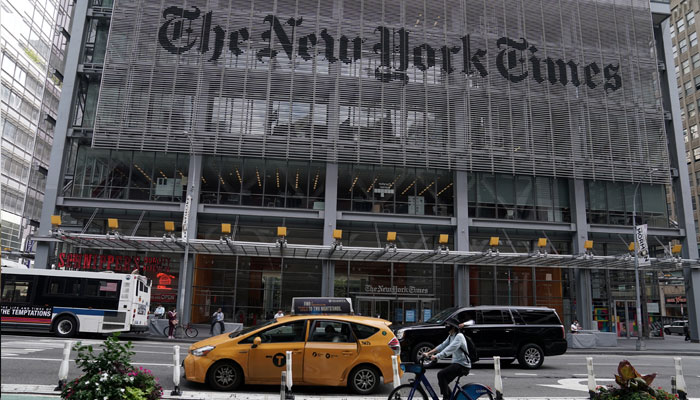Copyright infringement: New York Times files lawsuit against Microsoft, OpenAI
Lawsuit contends the media company's content was utilised to train AI chatbots without proper authorisation
December 27, 2023

The New York Times has initiated legal action against Microsoft Corporation and OpenAI, filed at the Federal District Court in Manhattan.
The lawsuit contends that the media company's content was utilised to train AI chatbots without proper authorisation.
The New York Times is seeking accountability from Microsoft and OpenAI, aiming for "billions of dollars in statutory and actual damages" for the alleged "unlawful copyright and use of The Times's uniquely valuable works."
The lawsuit urges the deletion of all chatbot models and data derived from the newspaper's articles.
The complaint accuses the defendants of exploiting The Times's journalistic investment, using its content without compensation, and creating products that undermine and divert audiences from the newspaper.
The suit was lodged after months of negotiations between the companies failed to produce a deal, according to the Times.
It is the latest sign of growing backlash from media outlets, authors and other creatives as tech giants use endless reams of internet data to “train” their AI models. Critics fear that the rise of chatbots and other AI tools will further erode revenue within the struggling journalism sector – or even render creative fields obsolete.
In September, a coalition of authors including “Game of Thrones” creator George R.R. Martin, Jodi Picoult and John Grisham sued OpenAI for allegedly using their copyrighted works without permission. Their suit alleged that the “success and profitability of OpenAI are predicated on mass copyright infringement.”
Elsewhere, News Corp CEO Robert Thomson noted in November that The Post’s and the Wall Street Journal’s parent company has “led the quest for compensation for content from the big digital platforms” over the last decade and has “entered a new phase of negotiations with the rise of Generative AI.”
Thomson had previously called out OpenAI’s ChatGPT for exhibiting a left-wing bias and slammed the chatbot’s tendency to spit out gibberish as “rubbish in, rubbish out, rubbish all about.”
Billionaire mogul Barry Diller, the chairman of Dotdash Meredith’s parent company IAC, told Semafor earlier this year that he believes media companies should band together and sue tech giants for using their content to train AI models.











